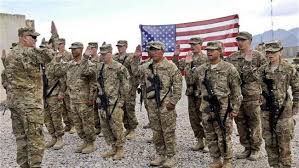Presidential Contenders Defend Gay Ban With Questionable Facts
GOP Candidates Challenged on Military’s Unpopular Policy
SANTA BARBARA, CA, – The Republican presidential candidates this evening defended the military’s ban on openly gay service members with outdated and flawed assertions, according to researchers at the Palm Center, a think tank at the University of California, Santa Barbara.
The candidates were challenged on their position at this evening’s CNN YouTube debate, when they were asked by an openly gay retired Brigadier General why they believed that American service members “are not professional enough to serve with gays and lesbians.”
Duncan Hunter answered that “having openly homosexual people serving in the ranks would be bad for unit cohesion.” The reason he cited was that most service members are conservatives with “Judeo-Christian values,” and that “to force those people to work in a small, tight unit with somebody who is openly homosexual, that goes against what they believe to be their principles,” is a “disservice to them” and would harm cohesion.
But a 2006 Zogby poll found that 72% of returning Iraq and Afghanistan war veterans say they are “personally comfortable” in the presence of gays. Other polls found that a solid majority of the country, including majorities of Republicans, conservatives and regular church-goers, now support letting open gays serve.
According to Aaron Belkin, director of the Palm Center, the unit cohesion rationale has been discredited, and researchers in the field no longer invoke it to defend the ban on openly gay troops. “No evidence has ever tied the presence of known gays to the impairment of unit cohesion,” said Belkin, “and all the evidence we do have shows that gays serve openly throughout the ranks, here and abroad, without incident.”
Mike Huckabee’s answer was that the “Uniform Code of Military Justice is probably the best rule, and it has to do with conduct” which could put morale and cohesion at risk. But Nathaniel Frank, Senior Research Fellow at the Palm Center, explained that the UCMJ is distinct from the “don’t ask, don’t tell” policy governing gay service, and service members have routinely been discharged not for homosexual conduct but for the discovery of letters or emails that reveal their sexual orientation.
John McCain and Mitt Romney, who previously said he looked forward to the day when open gays could serve in the military, both claimed that senior military officials tell them the current policy should not be changed because it is working. “All the time I talk to our military leaders,” McCain said. “Almost unanimously they tell me that this policy is working” and ought to be maintained.
But a growing number of top generals and admirals are calling for an end to the ban on open gays, saying it wastes badly needed talent such as Arabic linguists, intelligence operatives and medical specialists. Most prominently, General John Shalikashvili and Admiral William Crowe, both former chairmen of the Joint Chiefs of Staff, recently denounced the “don’t ask, don’t tell” policy as impractical and unfair. Belkin said that surveys and other research suggest that tens of thousands of gays are currently serving openly in U.S. military operations, showing that the policy does not work, and that cohesion has not suffered from their presence.
